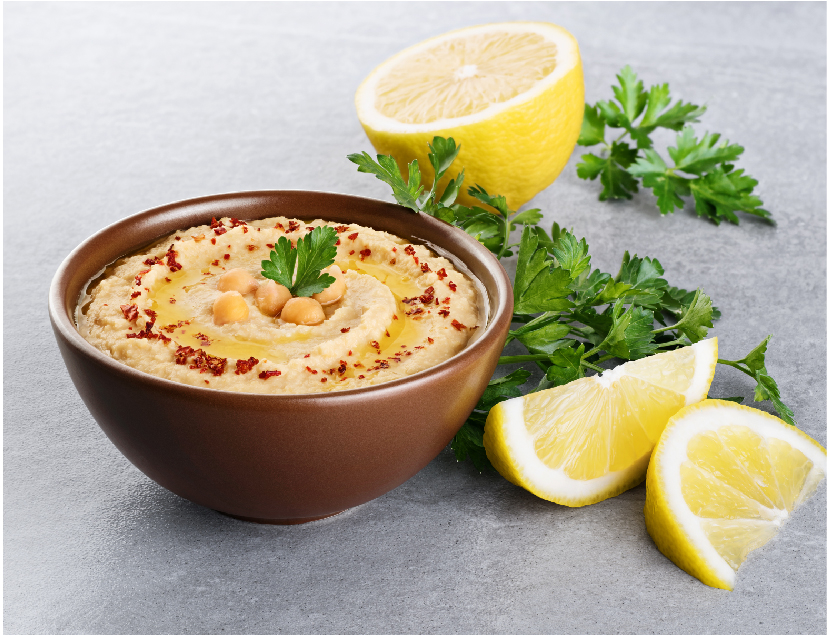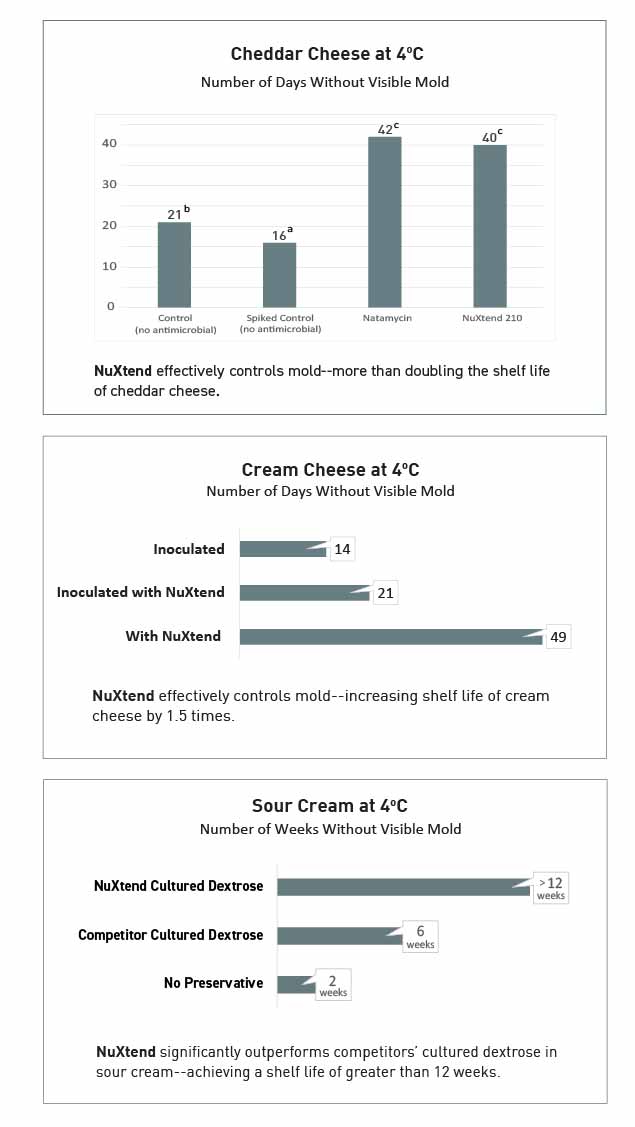Dairy products, owing to their nutritional richness, are highly susceptible to microbial spoilage, including mold growth. This poses significant challenges to the dairy industry in terms of product safety, shelf life, and consumer acceptance.
Traditional methods for mold inhibition, such as the use of chemical preservatives, have raised concerns regarding health implications and consumer preferences for natural ingredients. Consequently, there is a growing interest in natural preservation methods. Cultured dextrose, cultured tapioca and cultured skim milk are three promising natural agents in the battle against mold in dairy processing.
Benefits of Using Natural Preservatives
The use of natural preservatives like cultured dextrose, cultured tapioca and cultured skim milk address consumer concerns about synthetic additives. These natural agents are generally recognized as safe (GRAS) and do not pose the same health risks associated with chemical preservatives. They contribute to a cleaner label and can enhance the nutritional profile of dairy products by adding beneficial probiotics. In a recent survey in the US, 90% of consumers said they think clean label is positive and 80% of consumers want to recognize the ingredients in their food. According to a recent survey, nearly 50% of US consumers are seeking foods without artificial preservatives. Along with clean label, consumers are requesting transparency in labeling and the use of real foods in the products they buy.
Finding functional, natural ingredients and processes to provide the same results as artificial preservatives has been challenging for manufacturers while ensuring food safety and shelf life to reduce waste and consumer complaints. Manufacturers are always looking for ways to move to greener, more sustainable and label-friendly options for consumers.
Natural preservatives are also typically more environmentally friendly compared to synthetic chemicals. The production processes are sustainable and involve renewable resources. Moreover, they reduce the reliance on chemical preservatives, which can have adverse environmental impacts through their production and disposal.
 Photo: ©vitals/Shutterstock.com
Photo: ©vitals/Shutterstock.comThe environmental impact of food waste and the drive for clean label ingredients has created a case for change in the food industry. Globally, 26% of greenhouse gas emissions come from food systems, and of the food produced, 1/3 goes to waste. Bringing together the environmental impact of food waste and the desire for clean, recognizable ingredients changed an industry that has historically depended on artificial preservatives to extend product shelf-life.
The overall category for biocides/preservatives globally is estimated to be $12 billion. While there are some clean-label and natural solutions in the market today, many of them are expensive or not compatible for all applications. While the initial cost of implementing natural preservatives might be higher, the long-term benefits include reduced spoilage and waste, extended product shelf life, and potentially higher market value due to consumer preference for natural products.
NuXtend: A Natural, Plant-Based Preservative
NuXtend extends shelf-life and assures the quality of cultured dairy products. NuXtend is proven to have the same or better efficacy than chemically derived preservatives such as calcium propionate, potassium sorbate and sodium benzoate in a variety of food applications.
It is created through a proprietary fermentation process and has superior performance in cultured dairy products such as sour cream and plant-based spreads and cheeses where shelf life was doubled when compared to the current formula without a preservative. Yogurt, being a fermented dairy product, can benefit from the additional use of cultured dextrose and cultured skim milk to further enhance its microbial stability. The addition of these preservatives can help maintain the desired microbial balance and prevent mold spoilage during storage. This is particularly important for yogurts with added fruits or flavors, which are more prone to mold contamination.
 Image: ©NuTek Natural Ingredients
Image: ©NuTek Natural Ingredients NuXtend efficacy against several species of yeast and molds was studied in mozzarella cheese, cheddar cheese, cream cheese and sour cream at 4ºC. In mozzarella and cheddar cheese inoculated with Aspergillus spp., NuXtend at 1.0% usage was equally as effective as 15 ppm natamycin and was able to extend the shelf-life by 23-25 days versus control with no preservative. Likewise, NuXtend was evaluated in cream cheese inoculated with Penicillium spp. And Candida ssp. cocktails. NuXtend increased the shelf life of inoculated cream cheese by 1.5 times while preserving uninoculated products over 7 weeks. And at 0.2 – 0.4% inclusion, NuXtend more than doubled the shelf life of sour cream versus a competitor’s cultured dextrose, with no adverse effect on finished product quality or sensory attributes.
NuXtend comes with labeling options including cultured dextrose, fermented tapioca, cultured skim milk, and natural flavor. Typical usage in dairy products is 0.2 to 0.4%, but could vary depending on the application and target microorganisms. NuXtend is a highly soluble and free-flowing powder, making it easy to use in dairy processes. NuXtend does not have any impact to taste and flavor. NuXtend will last for 2 years when stored in a cool, dry environment.
“These cost-effective solutions deliver an all-natural preservation solution while delivering the same great taste and functionality as synthetic preservatives. Our in market efficacy performance delivers stronger mold control than many leading solutions in the market today offering our customers the opportunity for lower inclusion rates and longer shelf life on their products,” commented Steve Zimmerman, Senior Director Technical Sales, NuTek Natural Ingredients.
The use of fermented dextrose and cultured skim milk as natural biopreservatives offers a promising solution to mold inhibition in dairy processing. These biopreservatives not only enhance the microbial stability and shelf life of dairy products but also align with consumer preferences for natural and safe food ingredients. While there are challenges to be addressed, the potential benefits make it a worthwhile area for continued research and development. Embracing these natural preservation methods could lead to safer, more sustainable, and consumer-friendly dairy products in the future.


